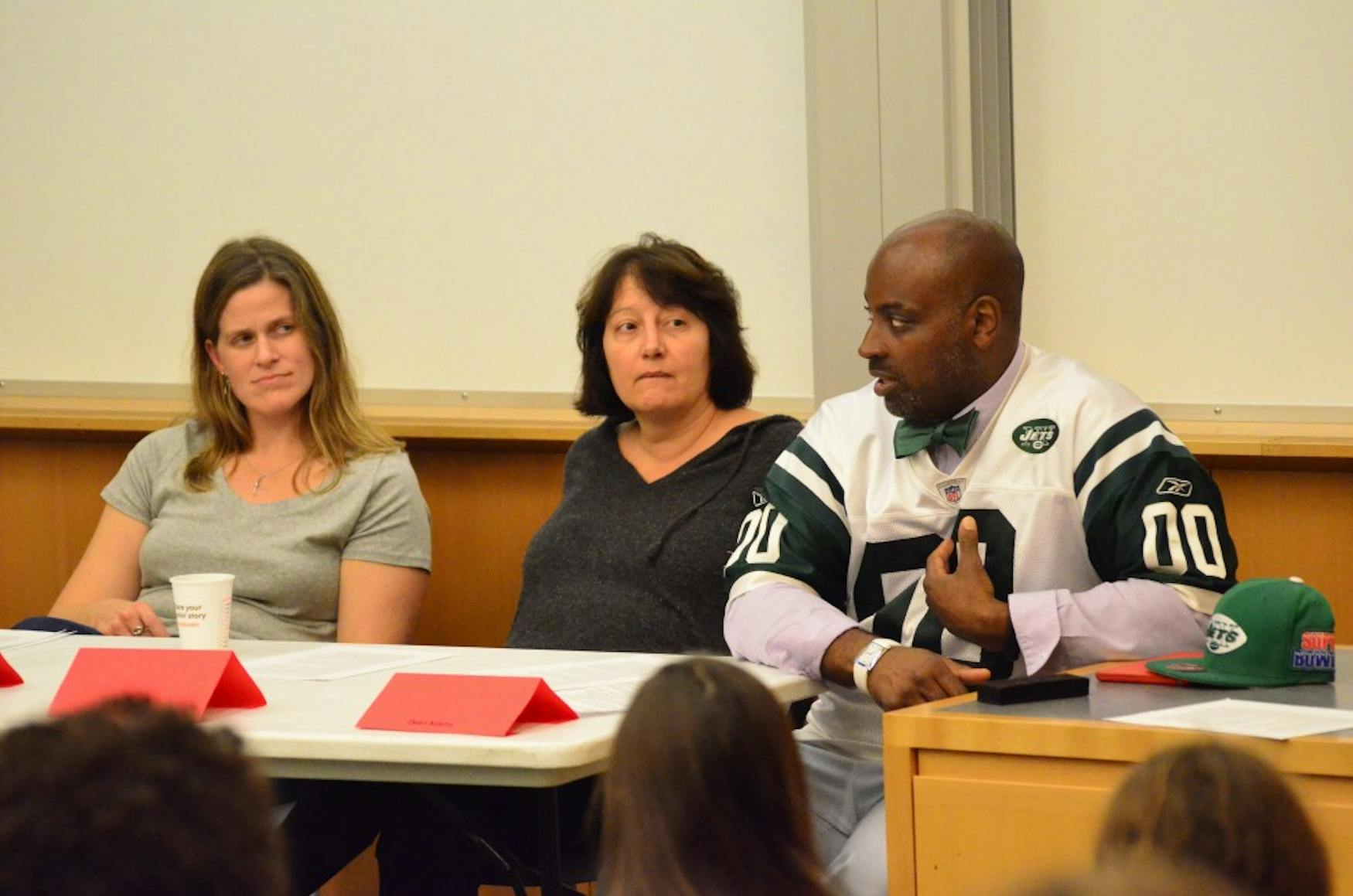Panel discussion looks at art’s social role
Some say that art gives voice to the silenced. On Thursday, Tympanium Euphorium, the department of Theater and Creativity, the Arts and Social Transformation presented a panel that discussed the role of art in social change through the lens of Spring Awakening. Tympanium Euphorium will be staging the musical in November. During the event, Rachel Liff ’16, the director of the musical, asked several questions to panelists Profs. Jen Cleary (THA) and Adrianne Krstansky (THA), Dean of Students Jamele Adams and Dr. Joy Von Steiger, senior associate director at the Psychological Counseling Center. Later, the audience, which consisted of Spring Awakening’s production staff cast members, Brandeis students and staff were encouraged to ask the panelists questions.
Liff began by warning the audience about possible triggering topics in the discussion to come, including the themes of sexual and emotional assault, suicide and abortion. From the start of the event, it was clear to everyone in the audience that the show incorporated very heavy themes.
Liff then asked the panel to think about a theatrical performace or other type of art piece that deals with a social issue and how it impacted their lives. Answers from the panel ranged from plays that talked about racism in the United States to issues dealing with violent relationships and mental illness. Regardless of the different topics the panelists chose to focus on, they could all identify with the theme the art piece presented.
Another point that came out of the conversation was about how art allows individuals to not feel alone. The panel spoke about how through art, it is easy to understand ideas of community and acceptance.
One member of the audience asked about art’s ability to create social change and why the current generation is still suffering from issues of past generations. To this, Cleary responded that art does not provide solutions but it exposes a problem, initiating conversations about that topic. It was also pointed out that many of the conversations this generation has about topics like sex, violence and racism are only possible because, at some point in the past, artists had exposed the topics. Therefore, art creates social change by exposing to the world issues that may otherwise not to be talked about. Later, Krstansky commented on the way art project should be presented to the audience. Krstansky said that if an art project is telling the audience what to think instead of letting the audience come to those terms by themselves, she personally does not consider that to be art.
The audience took the discussion of art in relation to sensitive topics, such as mental illness and sexual assault, with maturity and openness. Some members of the audience even felt comfortable sharing personal stories when asking questions to the panel. This shows the capacity of art to break boundaries and bring people closer to each other by the sharing of narratives.
When asked about her hopes for the play, Liff stated that she would like to the audience take these silenced topics and construct further conversations. She also added that many challenges, such as the arrangement of space, were presented in order to construct a play that would inspire such conversation, but those challenges were overcome by the support of her production teams as well as the cast members.
From the discussion, the play sounds like a musical that is not afraid to speak up about issues that are too often ignored.
Spring Awakening will be opening its doors to the public from Nov. 13 to 16.



Please note All comments are eligible for publication in The Justice.